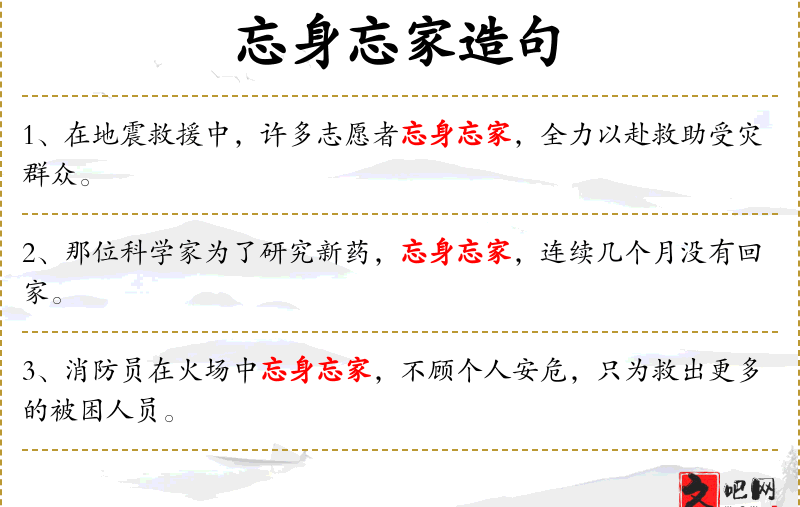
最后更新时间:2024-08-20 14:39:46
语法结构分析
句子:“在抗洪救灾中,解放军战士忘身忘家,日夜奋战在第一线。”
- 主语:解放军战士
- 谓语:忘身忘家,日夜奋战
- 宾语:在第一线
句子为陈述句,时态为一般现在时,语态为主动语态。
词汇学*
- 抗洪救灾:指对抗洪水灾害并进行救援工作。
- 解放军战士:**人民解放军的士兵。
- 忘身忘家:形容全身心投入工作,不顾个人安危和家庭。
- 日夜奋战:不分昼夜地努力工作。
- 第一线:指最前线,最危险或最重要的位置。
语境理解
句子描述了在抗洪救灾这一特定情境中,解放军战士们不顾个人安危和家庭,日夜奋战在最前线的情景。这体现了军人的奉献精神和牺牲精神。
语用学分析
句子在实际交流中用于赞扬和表达对解放军战士的敬意。它传达了一种崇高的道德情感和集体主义精神。
书写与表达
可以用不同的句式表达相同的意思,例如:
- “解放军战士在抗洪救灾中,不顾个人安危和家庭,日夜奋战在最前线。”
- “在抗洪救灾的严峻时刻,解放军战士们忘我工作,日夜坚守在最危险的位置。”
文化与*俗
句子体现了人民解放军在国家危难时刻的英勇表现,这种牺牲精神在文化中被高度赞扬。相关的成语如“舍生忘死”也体现了类似的价值观。
英文翻译
Translation: "In the fight against flood relief, the PLA soldiers forget themselves and their families, fighting day and night on the front line."
Key Words:
- 抗洪救灾 (fight against flood relief)
- 解放军战士 (PLA soldiers)
- 忘身忘家 (forget themselves and their families)
- 日夜奋战 (fighting day and night)
- 第一线 (front line)
Translation Interpretation: The sentence highlights the dedication and selflessness of the PLA soldiers in the face of natural disasters, emphasizing their commitment to protecting the people at the cost of their own safety and family life.
Context and Situation Analysis: The sentence is used to commend the bravery and sacrifice of the PLA soldiers during critical times, reflecting a cultural value of prioritizing collective well-being over individual interests.
1. 【忘身忘家】 身:自身。忘掉了自己,忘掉了家。形容为了国家而不顾自身和家庭。
